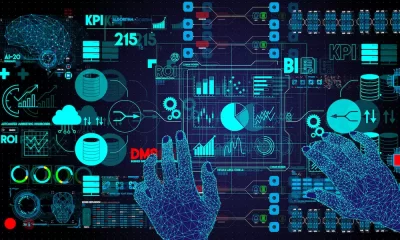Education
The Importance of Business Analytics of Big Data
Business analytics involves communicating results of data analysis through statistical operations, the formation of predictive models, and application of optimization techniques. In layman’s terms, business analytics breaks down information related to past performance to plan for the future.
The Importance of Big Data
The task of pouring over large amounts of data or Big Data as it is called, to come up with solutions is a profession that reaches even into the most humble parts of daily life. In fact, this particular aspect of the business is essential to the economy, but more significantly, is attractive to those wanting to take part in shaping some of the most well-known and popular businesses and products.
Data Mining
Big data analytics has many practical applications, particularly for marketing and advertising within the business. It’s also fundamental for competition, in industries like banking and finance and also insurance.
Lenders use data mining to stay relevant with their current client base as well as compete on interest rates to secure new customers. Insurance companies do the same, insofar as they rely on reports from data science analysis when they change their policies for say car, contents, house and of course business insurance.
Fast-food giant McDonald’s relies on business analytics to customize services to diverse populations internationally.
Business analytics has also predicted the effectiveness of converting from manpower to robots. Tally, built by Simbe Robotics, is a robot intended for highly dense retail environments that would assist employees by gliding around the store to ensure that items are stocked in the right place for the right price.
Even in agriculture, farmers find that business analytics vital for smart farming practices. For example, monitoring the impact that water, fertilizer, and the sun have on crops.
Data Scientists and Analysts are in Demand
Analytics, in modern business, has become an invaluable player in helping companies plan and predict future performance.
While anyone with a degree in business could work in this field, those with the following attributes might find themselves attracted to this industry:
- Those who are naturally inquisitive and who like to understand the what, where, and how of any situation would love this field of work.
- Being able to look at information and interpret meaning is also very important in this field—these skills aid in developing strategies for helping businesses succeed.
- Those with a basic understanding of skills related to analyzing data (knowing SAS and Excel is a plus) would excel in this profession.
- Being detail-oriented is also important.
- Finally, if you want to work with figures, you have to be comfortable with numbers and mathematical formulas.
All of these characteristics make up the basic skills needed to work in business analytics.
People interested in a career in this field can find any number of colleges in the country that offer both a bachelors and masters in business data analytics. However, some sites advise that when looking for a program, students should consider the following:
- Search faculty listings within each department to ascertain the qualifications of the professors. Many professors have not only worked in the field for years but have also been consultants outside of the classroom.
- Look at the course offerings. In this particular field, students might encounter one of two types of classes. Descriptive courses cover data reporting and summarizing, and prescriptive courses might cover optimization. Also, masters degree programs can last anywhere from ten months to almost two years. Hence, course offerings between schools are not always congruent, even though over a degree program, the student would theoretically take courses that cover all of the topics needed to work in this field.
- Determine whether or not you would actually need to earn an MBA or MS. More schools offer a master’s of science degree in business analytics than an MBA, and those interested in the field would need to decide how they want to use their degree. Someone whose career goals are to be in a managerial position might find an MBA program more appropriate. In contrast, someone who has an interest in developing models and doing analytics might find a master’s of science more appropriate.
These considerations are probably some of the more pertinent needed to determine which type of program and degree is important for you, the student.
Business analytics seems to be an exciting field and career choice for those professionals interested in shaping the direction of consumer choices.
From determining food choices for popular food chains to helping farmers supply food for human consumption, business analytics is at the forefront of the economy in helping major corporations plan for the consumer.
The profession is one that appears to have a growing need. With the proliferation of institutions willing to offer programs in this area, those interested in the field have several options from which to choose.






